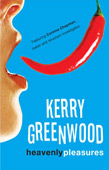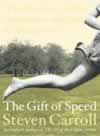Not a lot of Australian books are covered in this week's "AgeReview" and none of the reviews, it appears, are available on the website. The Persuaders: Inside the Hidden Machine of Political Persuasion by Sally Young, takes, as a major premise, that before the most recent Federal election, the Liberal party believed that the result would be decided by fewer than 4000 voters in marginal seats across the country - shades of Florida in 2000, and Ohio in 2004. As a consequence, Federal politicians believe it is easier to change the perception of reality, than to change reality itself. And both sides of the political equation are equally to blame for this. A sorry state of affairs, indeed.
Deborah Forster reviews Butterfly Song by Terri Janke, which has been mentioned on this weblog a few times previously. The general consensus seems to be that the book has good intentions, it tries hard but needed some more work on the characters and the reader's involvement with them. This is certainly Forster's view, though she does temper the criticism by concluding: "At its best, though, Butterfly Song has a simplicity and does feel a bit like a fable, about Mabo, about the strength of indigenous people, and the ability of people to love each other and to survive with dignity and prosperity. Something we would all fervently wish for."
Short notices are given to: The Lace Maker's Daughter by Gary Crew, "...the book drove me to distraction"; Digging Up Deep Time by Paul Willis & Abbie Thomas, "The ABC...should turn it into an Australian version of Walking with Dinosaurs"; The Wish List by Melanie La'Brooy, "...an entertaining and certainly harmless read"; Unbroken Blue by Jan Borrie, "...better at evoking emotion and place than narrating story, this slim novel has niche rather than mass appeal"; No Worries by Bill Condon, "...affecting and involving: a kind of David and Goliath story, with more than one Goliath"; and Oh No, We Forgot to Have Children by Deidre Macken, "...there is a rash of books on women's fertility and attitides to motherhood...this one makes a worthwhile contribution."
With Geraldine Brooks's latest novel March being reviewed in the US earlier in the week, Murray Waldren from "The Australian" caught up with her in Sydney before she returned to Virginia. The best quote of the interview relates to Brooks's interest in "bodily distress" in history, to which she replied:"...there's some emphasis on battle wounds and their treatment in March - my father-in-law is a medical historian with a special interest in Civil War medicine, so he was able to fill me in, in hideous detail, about the techniques and practices of the time." Not a topic for dinner-time conversation one suspects.
"The Australian"/Vogel Award has hit 25 years in existence, and Rosemary Neill interviews a few of the protagonists from the period. The award, for an unpublished manuscript by an Australian writer under 35, has had its fair share of controversy over the years: the first winner, Paul Radley, later confessed that his uncle, the middle-aged writer Jack Radley, had actually written the book; and then there was the Helen Demidenko affair, which started after she won the 1993 prize. Articles of this sort just prod me along to get my award web page fixed up some time soon.
Other Australian books published in this "Weekend Australian": The Catch by Marg Vandeleur: "...it's an entertaining, easy read, there is character development at the right points: it is a very stitched-together first novel"; and The Goddamn Bus of Happiness by Stefan Laszczuk: "Laszczuk, between the beers, has something to say about cheating that death worse than fate lurking in the wings of even the most blessed life. You probably don't want to go to all the places he takes us but at least he shows us a way out again."
Frances Atkinson profiles Marg Vandeleur, and her novel The Catch, in "The Sunday Age" this week. The book was born out of a number of experiences in her life, not least her recent battle with a rare form of cancer, which confirmed her desire to write, and her regret at not having had children, which inspired the subject matter. Atkinson finds that "The Catch is part comedy of errors, part tender yearning; a literary pinata packed with vibrant characters, complicated friendships, sexual diversity, fishermen and piscatorial analogies." And it is this fishing analogy which led Vandeleur to the 1960 edition of The Encyclopedia of Fishing in Australia edited by Roger Hungerford. She finally contacted Hungerford and was able to get permission to utilise his chapter headings for her book. "He was thrilled. He said he hoped that my book put him on the map."


